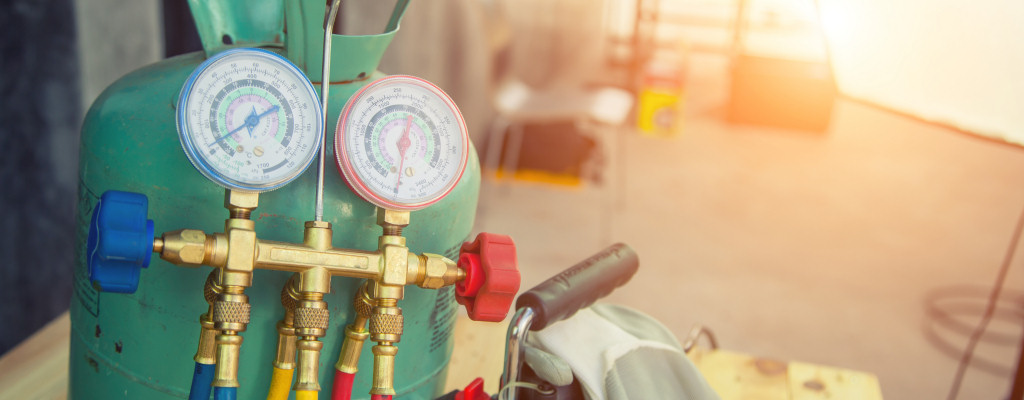You might be aware that a new law banning the production of a conventional air conditioning refrigerant took effect on January 1st. Freon is no longer being produced, and it has already begun to be phased out of use completely. What does this mean for homeowners with units that rely on Freon refrigerant? Will your system need to be replaced?
We want to help clear the air about Freon and older AC systems. Here’s what you need to know.
New regulations are in effect this year
The Environmental Protection Agency (EPA) works to decrease the use of chemicals harmful to the environment. In 1992, the agency decided that hydrochlorofluorocarbons (HCFCs) – the chemicals which enable refrigerators and air conditioners to cool air – should be phased out. Studies have found that HCFCs affect global warming and ozone depletion. These chemical compounds are only a small part of the greenhouse gases affecting our environment, but according to the New York Times, “they trap thousands of times as much heat in the atmosphere as carbon dioxide.”
For many years, Freon – also known as R-22 and HCFC-22 – was the primary refrigerant used in heat pumps and residential air conditioning units. To help protect our planet’s ozone layer, the EPA mandated the stoppage of Freon production by January 2020.
Fortunately, new air conditioning systems manufactured since 2010 no longer use Freon. Most modern units use a refrigerant called R410A, or Puron. Like Freon, this chemical is also an HFC, but has not been shown to harm the ozone and, since 2015, has become the residential AC standard.
The ban’s impact on homeowners with older units
You shouldn’t worry. Many affected homeowners have already switched to the more environmentally friendly refrigerants. HVAC professionals have been gradually phasing out Freon over the past decade. Any older AC system that has been replaced in that time was probably switched out for an R410A unit.
Freon is only an environmental hazard if it escapes into the atmosphere (leaks out) or is disposed of improperly. It’s important to know that Freon-based HVAC units still functioning properly don’t need to be replaced now. While it is true that starting in 2020, Freon won’t be produced or imported; limited amounts are still available. Older systems can be recharged or serviced using existing stocks of R-22. Once these stocks are gone, however, technicians will need to source recycled Freon to keep an old cooling system running – and this will likely be an expensive proposition for a homeowner. In other words, a new R410A system will become a better financial decision, in addition to being better for the environment.
Retrofitting older air conditioners
The EPA doesn’t require homeowners to buy new AC systems, and retrofitting your older system is a valid option. Unfortunately, you can’t just switch to the new refrigerant. Many older air conditioners have compressors and other parts which will only work with specific chemicals. Fortunately, this doesn’t mean that your AC system has to be replaced.
If the coils in your system are compatible with R410A refrigerant, our expert technicians can replace the outdoor condenser unit without needing to upgrade other AC system components in your home. This option can be expensive, but it’ll keep your current AC system running. Switching to R410A may also make your existing unit more energy efficient. It’s worth noting that routine service is essential for a retrofitted system to prevent leaks and any potentially harmful effects on the environment.
Replacing an older AC system
If your unit was produced before 2010, you should consider replacing it. After all, the average working life of an HVAC system is 15 years. Modern air conditioners are more energy-efficient and more environmentally friendly as well. Lower utility bills are a significant consideration when determining the best course of action. Many homeowners opt to replace older systems rather than retrofit because it ensures greater long-term energy savings.
Trust us for quality AC service!
Homeowners should only trust EPA-certified dealers who are familiar with new Clean Air Act regulations. Proper servicing, installation, and refrigerant replacement require specialized training to prevent leaks.
If you’re unsure if your HVAC unit uses R-22 or R410A, or you’d like professional advice on the best solution for your older unit, call us today! We’re always happy to help our valued customers gain peace-of-mind on issues like these. That’s how neighbors should treat neighbors!™


Comments are closed